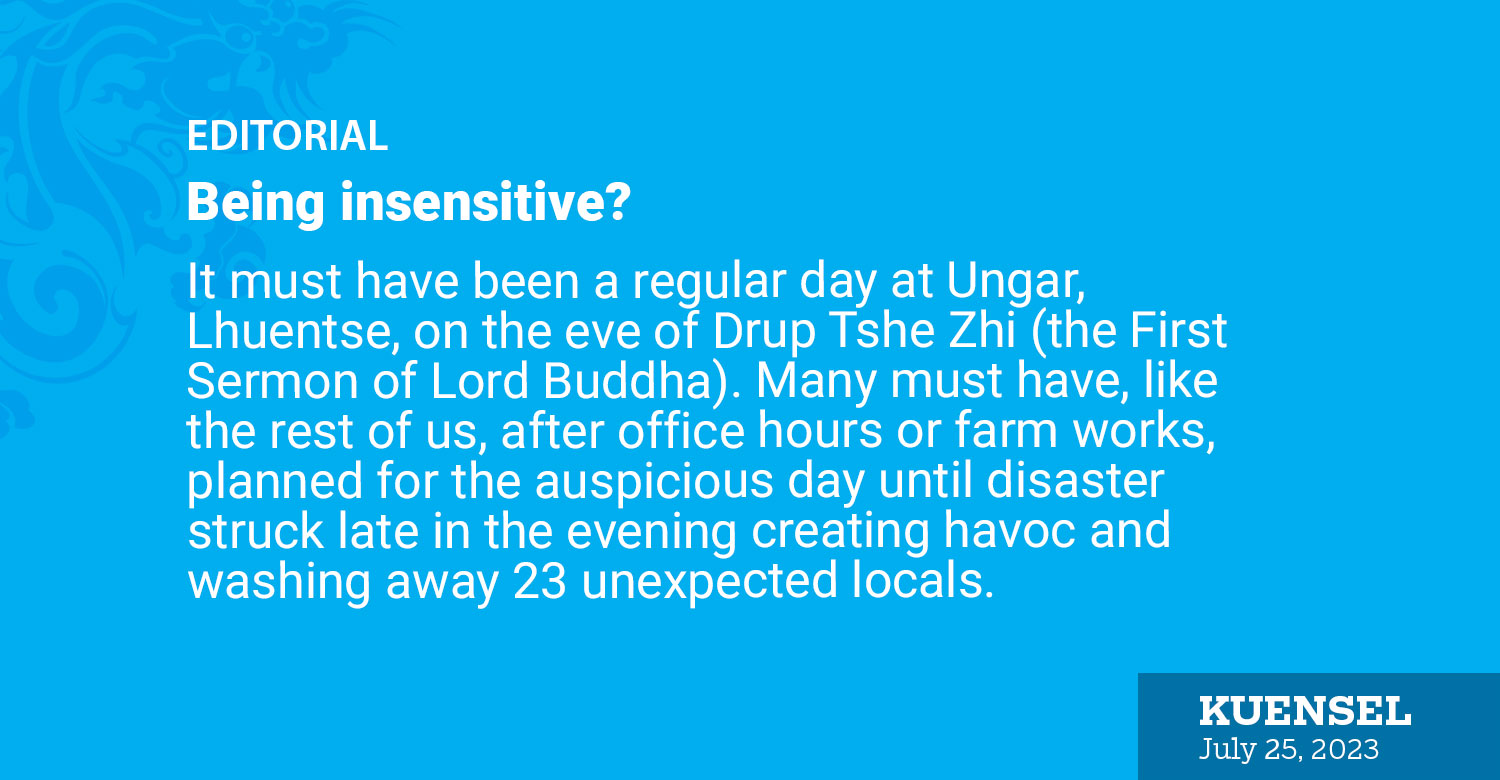It must have been a regular day at Ungar, Lhuentse, on the eve of Drup Tshe Zhi (the First Sermon of Lord Buddha). Many must have, like the rest of us, after office hours or farm works, planned for the auspicious day until disaster struck late in the evening creating havoc and washing away 23 unexpected locals.
While rescue teams are still combing the river banks and digging debris to look for the missing, the Prime Minister and officials yesterday attended funerals at Khoma and Rangjung, being with the people, consoling and comforting those affected by the disaster.
Nothing will compensate a bereaved father, mother, brother or sister, but the concern from the head of the government, local government officials and officials from relevant offices would be comforting at a time of loss. The Ungar flood was one of the worst disasters in recent times. Twenty-three people were killed with bodies of many still not recovered to complete the funeral rites.
Yet, it seems too remote a concern, perhaps unfortunately because of where it happened. Life is as normal as it is. We have a mega festival happening in one dzongkhag, wanting to extend because of its commercial success, and many other events happening in the capital and beyond. We cannot expect the nation to pause and mourn for the lives lost, but like some say, in the pursuit of materialist things, we are forgetting our values.
There is a saying that we mourn the death of a neighbour’s cow for three days. It is not practical nor should it be taken literally. But it indicates our values and care for the community. The nation should be mourning and praying for those who lost their lives in Ungar. On Drup Tshe Zhi, Lord Buddha gave his first sermon on the four noble truths to his five disciples. Perhaps, it is time we relook into why we celebrate public holidays or observe auspicious days.
Meanwhile, there is not much hope in recovering the bodies of those washed away by the flood. The flood was bad and came without any signs of warning. What we could do is to not forget the lessons mother nature is teaching us, constantly. This is not the first flooding in Lhuentse. It happened last year and could happen anywhere given that we made nature unpredictable.
We cannot take solace in the positive contribution we make to the global environment concerns. We are as vulnerable as anyone, if not worse given our location in a fragile ecosystem. What we could do is learn from the lessons and prepare accordingly whether it is planning development activities, saving lives or properties.
We are experiencing weather events frequently in crowded towns or remote villages. The shortage of water during transplantation season or flooding in towns like Phuentsholing are enough warning signs to act.


